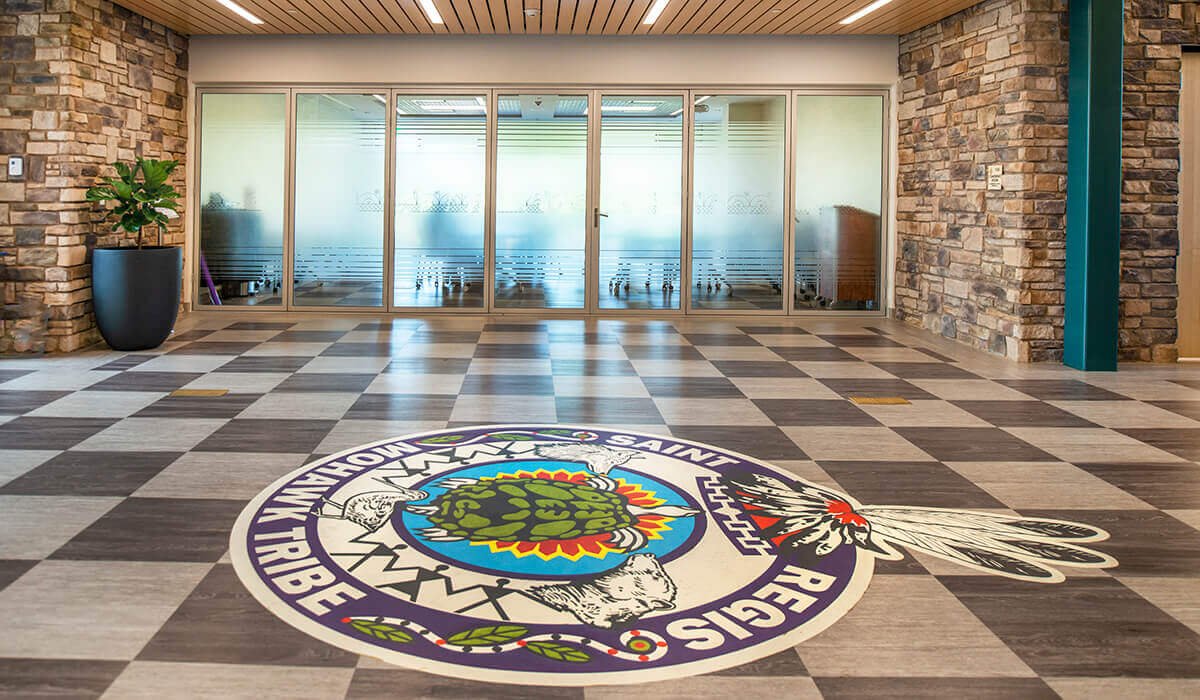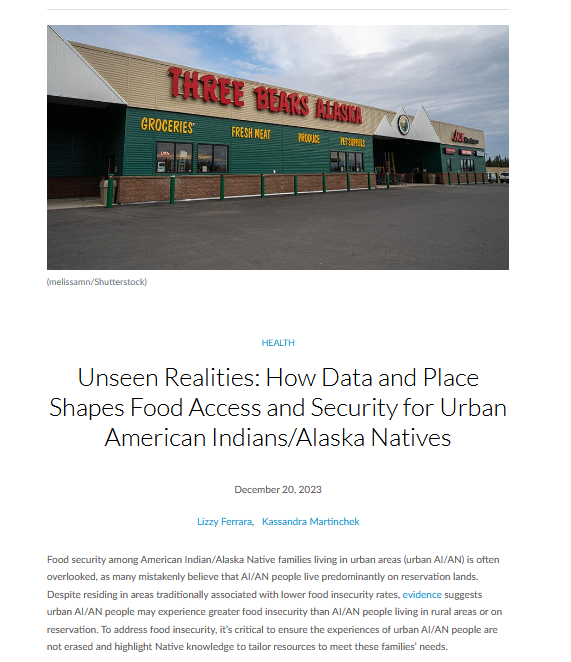

Cost reimbursement for Tribal Infrastructure Through 105(l) Lease Program (Copy)
A 105(l) lease is an agreement between Indian Affairs and a Tribe or Tribal Organization to reimburse facility costs incurred while carrying out programs, services, functions, and activities (PSFAs).
This first section of the track underscores the foundational elements of economic development plan implementation, including a qualified workforce/labor pool, an entrepreneurial ecosystem, and the primary infrastructure necessary to support economic activities.
This session featured the presentation of two unique funding mechanisms for supporting community economic development in tribal and Native communities, including Section 105(l) leases and Treasury’s State Small Business Credit Initiative (SSCBI), as well as an introduction to some useful tools and Resources the EDA offers for underserved communities
The first training in the CoP’s 9-part series of a variety of topics across Indian Country. Cris Gastner and Kevin Klingbeil from Big Water Consulting led a discussion and exercises about the foundations and essential components of CED in Indian Country and an introduction to CED planning.
The discussion centered around how project leaders identified a need for the facilities in their communities, how they secured funding, and the impacts the health centers will have and are having on community economic development. Experts also discussed how the 105(l)-lease program can help fund and support Native health centers.
Related: Food Systems & Agriculture Resources
Watch a video highlighting the Osage Nation’s Butcher House Meats, a 19,000-square-foot, state-of-the-art facility. The facility is designed to address food insecurity for the Osage people.
The Native Grown and Gathered Assessment Report provides an in-depth analysis of the challenges and opportunities facing Native-owned food and agricultural businesses. This report draws on interviews and surveys conducted with 44 Native food producers, identifying key areas for growth, funding needs, and technical support required to strengthen Native food sovereignty.
This loan product provides lending capital for loans to support lending to agricultural producers, agricultural marketers, agricultural processors and agricultural distributors. This includes food, fiber, forest products, livestock, equipment, horticultural crops, agricultural land purchases, and agricultural start-ups.
The Akiptan General Loan allows for operators to borrow up to $250,000 in order to grow their operation. It offers technical assistance as well as a financial literacy component that goes along in order to build operational knowledge. Anyone over the age of 18 years can apply for the General Loan funds which can be paid back over seven years, with a 5 year interest only period added if the producers chooses so.
This financing is great for producers who need to purchase land or need financing for the down payment portion. Anyone over the age of 18 years can apply for the land loan funds. Down payment assistance has up to a 15 year repayment period, and the full Land Mortgage Product has up to a 30 year repayment period.
The Indian Land Tenure Foundation (ILRF) work to promote education on Indian land ownership and management, increase cultural awareness of Indian land tenure, create economic opportunity on Indian-owned lands, and reform the legal and administrative systems that prevent Indian people and Native nations from owning and controlling their lands.
As the impacts of weather changes worsen, Indigenous peoples and small farming communities are being targeted by the lure of Climate-Smart Agriculture (CSA). CSA casts a wide net, including land-use practices, limiting crop selection, and agricultural products that are presented as solutions to the food crisis and environmental changes.
Learn from the owner of DX Beef and The DX Ranch, Kelsey Ducheneaux (Cheyenne River Sioux), and how their passion to help their consumers reconnect with their food source has driven them to build DX Beef into a Native Agritourism Ecosystem and how their willingness to share their skills and culture with guests resulted in The DX Ranch.
This report summarizes specific opportunities for Indian Country in each Farm Bill title. Potential changes identified would enhance Tribal Nations’ and Native producers’ access to important USDA programs and authorities that build communities, create jobs, grow economies, feed people, safeguard natural resources, and prioritize Tribal sovereignty.
This report by Indigenous Food and Agriculture Initiative identifies and shares community-based, food system innovations in tribal communities and throughout Indian Country. By sharing the results, the initiative hopes to inform potential funders, food system practitioners and researchers of change-makers in this space
A groundbreaking new handbook by American Indian and Alaskan Native Tourism Association (AIANTA), is developed for Native food producers interested in sharing culture, heritage and traditional food systems by expanding or developing agritourism enterprises.
The Census of Agriculture, taken only once every five years, looks at land use and ownership, operator characteristics, production practices, income and expenditures. The American Indian/Alaska Native Producers highlight shows statistics about agricultural products, producers, farms, and sales.
A two-part webinar series focused on educating media professionals on the history and best practices for covering Native Agriculture in the media. Presentations included “Indian Country 101” and “Telling the story of Tribal agriculture.”
This landmark report by NAAF outlines a plan to build processing, packaging, and distribution infrastructure to support Indian country’s farmers, ranchers, fishers, and harvesters while simultaneously feeding Tribal communities and meeting their nutritional needs.
The NAAF webinar series “Sowing the Seeds of Growth through Capacity Building” focuses on how foodways, cultures, and needs tie into the different building blocks for Indigenous agriculture systems. This series supports organizations as they work to build their own robust economies in agriculture.
This report highlight the disproportionate impact of COVID-19 on food insecurity among Native American communities. It emphasizes the need for improved data collection, better infrastructure, and enhanced federal nutrition programs to strengthen food security and sovereignty for Native communities.
This report by the NAAF provides a comprehensive guide for Tribes and Tribal organizations to develop agricultural economies and food sovereignty through strategic planning, feasibility assessments, and infrastructure development.
Niweskok (From the Stars to Seeds) nonprofit collaboration of Wabanaki farmers, health professionals, and educators working to revitalize food systems for tribes in northeast Maine. The collection are responsible to their communities.
Food security among American Indian/Alaska Native families living in urban areas is often overlooked, as many mistakenly believe that AI/AN people live predominantly on reservation lands. This article discusses missing local-level data on food access and addressing data violence to strengthen policies to lessen food insecurity and health disparities.
Quinault Indian Nation has had a deep connection to the ocean and ocean life for countless generations. Today, the nation and its members are using their natural resource and traditions for economic growth.
The Ute Mountain Ute Tribe (UMUT) known as the Weenuche Band of The Ute Nation, based in Towaoc, Colorado, has over 2,000 tribal members and is advancing food sovereignty and entrepreneurship. The Tribe will create a market that will provide healthy food options to locals and advance job opportunities.
The Indian Community Development Block Grant (ICDBG) Program provides direct grants for development such as decent housing, suitable living environments, and economic opportunities in American Indian and Alaska Native Communities. Projects funded by the ICDBG program must principally benefit low-and-moderate income persons.
The USDA Community Facilities Direct Loan & Grant program provides grants and affordable funding to develop essential community facilities in rural areas including Tribal communities.




























The Suquamish Indian Tribe of the Port Madison Indian Reservation provides an example of advancing self-determination and economic development while maintaining traditional practices by creating the Suquamish Seafood Enterprises (SSE).